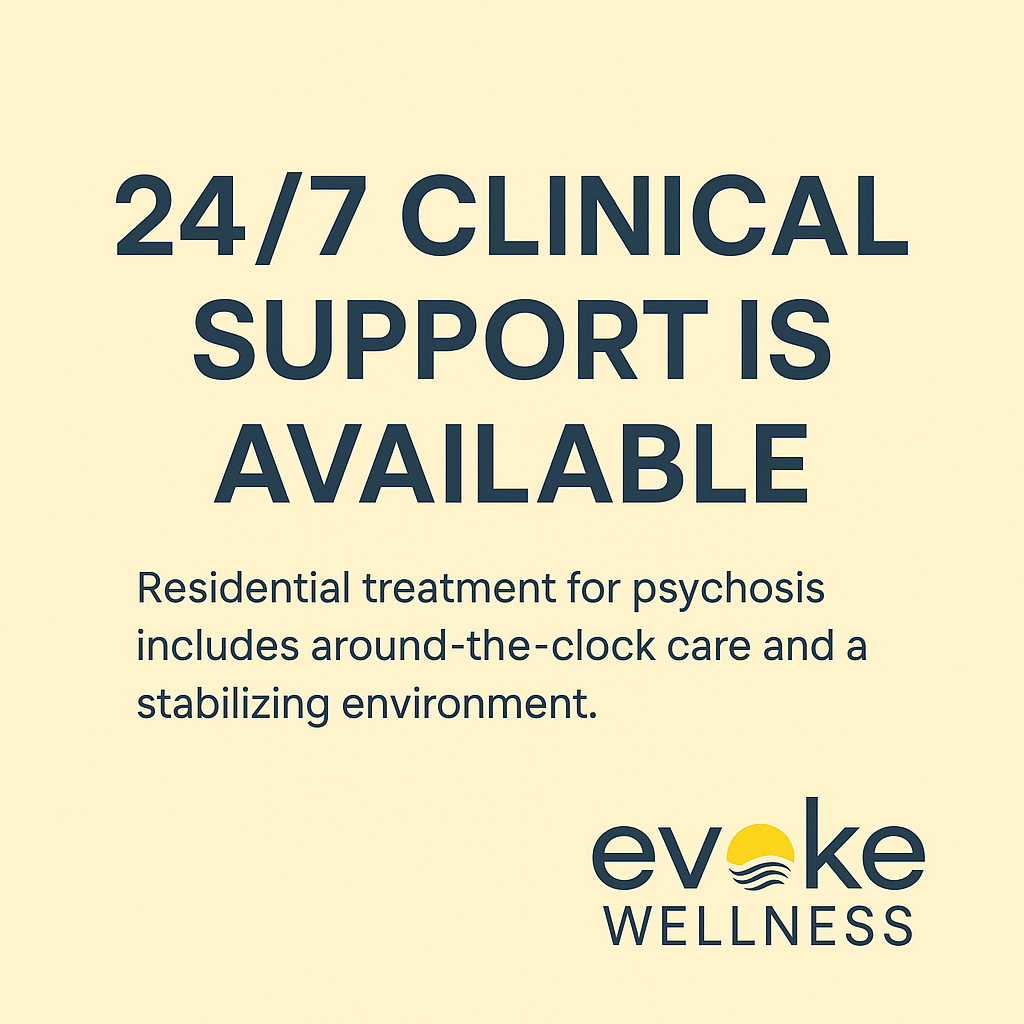When someone you love begins to show signs of psychosis, everything can feel unfamiliar. Their thoughts may seem scrambled, their behavior alarming, and the person you know might feel unreachable. In those moments, the phrase “residential treatment” can sound frightening—like a last resort or a loss of control.
But that’s not what it is.
Residential treatment for psychosis isn’t about taking someone away—it’s about creating a safe, structured space for stability, understanding, and recovery to begin. For many families and individuals, it offers the clarity they’ve been desperately trying to find.
What Is Psychosis?
Psychosis is a symptom, not a standalone diagnosis. It refers to an altered experience of reality that might involve hallucinations, delusions, or disorganized thinking. These experiences can be deeply confusing and frightening, both for the person experiencing them and their loved ones.
Psychosis can appear in conditions like schizophrenia, schizoaffective disorder, bipolar disorder, and even severe depression. It can also be triggered by trauma, substance use, or medical conditions.
What makes psychosis so overwhelming is that it doesn’t just change how someone feels—it changes how they perceive the world.
Early intervention matters. The sooner someone receives support, the better their long-term outcomes can be. That’s where residential treatment comes in.
What Does Residential Treatment for Psychosis Look Like?
Despite the fear that often surrounds the term, a Residential Treatment Program in Massachusetts for psychosis is not a cold or institutional experience. At reputable centers, it’s built on compassion, calm, and collaboration.
Here’s what someone can expect:
- 24/7 Clinical Support: Trained staff are available around the clock to provide medical oversight and emotional grounding. This helps reduce risk and ensure safety.
- Psychiatric Care: A psychiatrist works closely with the client to evaluate medication options and monitor their effects. Importantly, this is a dialogue—not a one-size-fits-all approach.
- Therapeutic Engagement: Clients participate in daily therapy sessions that may include individual counseling, group therapy, and trauma-informed care.
- Stabilizing Routine: Structure helps reduce chaos. Sleep hygiene, nutrition, and daily rhythms support healing at every level.
- Skill-Building: Cognitive behavioral therapy (CBT), mindfulness practices, and reality testing exercises help clients learn to manage and understand their symptoms.
- Family Involvement: Loved ones are included in the treatment process to foster understanding, rebuild trust, and ensure smoother transitions post-discharge.
Why Choose Residential Over Outpatient?
Outpatient care can be effective for many mental health concerns—but for someone experiencing psychosis, especially for the first time, outpatient alone may not provide enough support.
Residential treatment offers:
- A break from external stressors
- Constant supervision during medication changes
- Immediate response to emotional or behavioral crises
- Consistency and structure when reality feels fragmented
When psychosis impairs someone’s ability to understand what’s happening or take care of themselves, residential care becomes a stabilizing, necessary next step.
Common Fears About Residential Care—And What’s Actually True
Fear: “Will they be locked up?”
Truth: Residential treatment is not involuntary hospitalization. Clients engage voluntarily and are treated with dignity.
Fear: “Will they be overmedicated?”
Truth: Medication is carefully chosen and monitored. Clients are encouraged to voice their preferences and concerns.
Fear: “Will they be cut off from us?”
Truth: Family involvement is essential. Most programs provide regular updates, family therapy, and educational support.
The goal is to help someone feel more like themselves—not less.
Who Is Residential Treatment Right For?
Residential treatment for psychosis is ideal for people who:
- Are experiencing a first episode of psychosis
- Have been struggling with recurring or worsening symptoms
- Have not responded to outpatient or medication-only care
- Need a safe environment to stabilize
- May be at risk due to confusion, paranoia, or disorganized thinking
If someone is hearing voices, withdrawing socially, or expressing paranoid beliefs, it’s time to take action. And it doesn’t have to mean a permanent or drastic change—just the right level of support.
What Recovery Can Look Like
Recovery from psychosis doesn’t always follow a straight path. It might include setbacks, fear, and slow progress. But it also includes:
- Rebuilding trust with loved ones
- Understanding what triggers symptoms
- Finding the right medication balance
- Reconnecting with reality in safe, supported ways
- Restoring routines, social engagement, and a sense of self
It’s not about being “cured.” It’s about living well—even with the complexities of a mental health condition.
FAQs About Residential Treatment for Psychosis
What should I pack for a stay in residential treatment?
Most centers provide a packing list, but essentials include comfortable clothes, hygiene items, and a few personal comforts. Items like electronics may be restricted at first.
How long does residential treatment last?
Length of stay varies, but most programs for psychosis last between 30 to 90 days, depending on progress and individual needs.
Can someone refuse treatment if they are psychotic?
Yes, unless they meet criteria for involuntary hospitalization, treatment requires consent. However, many programs are skilled in engaging individuals who are initially resistant.
Will they be diagnosed with schizophrenia?
Not necessarily. Psychosis can have many causes, and diagnosis is a careful process. The focus is on stabilization first, not labels.
Is residential care covered by insurance?
Often, yes. Programs like our residential treatment center in Massachusetts work with major insurers and can help you understand your benefits.
Ready to Talk?
If someone you love is experiencing psychosis, you don’t have to navigate it alone.
Call us at (866) 931-6429. Our team at Evoke Wellness in Massachusetts is here to help you understand what’s happening and explore if residential care might be the right next step. You deserve answers, clarity, and care that meets you where you are.





